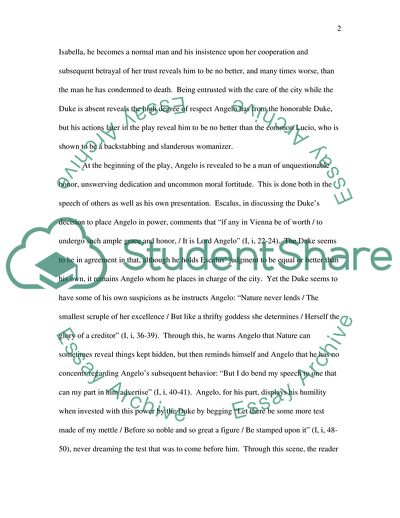Angelo in Measure for Measure Essay Example | Topics and Well Written Essays - 1500 words. https://studentshare.org/literature/1703753-analysis-of-angelo-in-the-play-measure-for-measure-by-william-shakespeare
Angelo in Measure for Measure Essay Example | Topics and Well Written Essays - 1500 Words. https://studentshare.org/literature/1703753-analysis-of-angelo-in-the-play-measure-for-measure-by-william-shakespeare.


